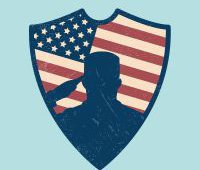Blog
Concussion Alliance & Co-Founders Featured In Slate Magazine
Concussion Alliance Co-Founders Conor Gormally and Malayka Gormally are featured in a powerful and excellently written story written by Isobel Whitcomb for Slate Magazine (Slate Magazine USA).
“Atypical psychedelic” ibogaine shows promise as a treatment for chronic disability following TBI
A landmark study published in Nature Medicine found that ibogaine, an “atypical psychedelic” derived from the root bark of an African shrub, showed highly beneficial effects on emotional well-being and cognition in a group of Special Operations Forces (SOF) veterans with chronic illness relating to their military careers and history of traumatic brain injury (TBI), primarily mild TBIs.
The Standard Advice for Concussions is Wrong: Concussion Alliance quoted in The Atlantic
In June, Leadership Team Member Dr. Elizabeth Sandel and I had the opportunity to (separately) talk with Tove Danovich for The Atlantic article The Standard Advice for Concussions Is Wrong. Tove and I had an in-depth conversation, and the article was published in The Atlantic on October 6th; the article includes a quote from me and two quotes from Dr. Sandel, Board Chair for Concussion Alliance.
Concussion Alliance CEO, Board Chair Quoted in The Atlantic
In June, Leadership Team Member Dr. Elizabeth Sandel and I had the opportunity to (separately) talk with Tove Danovich for an article about concussions and why it’s so hard for patients to find care. Danovich's article, The Standard Advice for Concussions is Wrong, was published in The Atlantic on October 6, 2023.
‘College Students’ Resources Get Coverage In Carleton College News
Concussion Alliance’s Co-founder Conor Gormally and Concussion Education & Advocacy Internship program interns Kira Kunzman and Kaori Hirano are interviewed for an article in Carleton News about the internship and their poster presentation at the World Conference on Brain Injury in Dublin.
Concussion Alliance CEO Speaks At Athletic Trainer Symposium
Concussion Alliance Co-Founder and CEO Conor Gormally presented at a combined Summer Symposium for the Colorado and New Mexico Associations of Athletic Trainers in Durango, Colorado, this July.
Concussion Alliance resources for college students press release
Concussion Alliance is pleased to announce a PR Newswire press release about our comprehensive, evidence-based set of concussion resources for college students, educators, and administrators. The press release was written by Melissa Sodko, MPH(c), as part of her intern practicum for her degree at Tulane University. AP News and at least 60 news outlets picked up the story.
Wrongful death complaint filed against NCAA goes to trial, it is the first of its kind to go in front of a jury
A wrongful death suit filed against the NCAA by the widow of former USC linebacker Mathew Gee.
Resting brain connectivity deficits in service members with mTBI and PTSD associated with working memory performance
A study found that active duty service members with a history of mild traumatic brain injury (mTBI) and PTSD had similarly lower levels of resting state functional connectivity (rsFC) in regions associated with working memory compared to service members with an orthopedic injury.
Goldilocks effect: screen time in moderation after concussion may be “just right”
A study found that very low and very high screen time predicted more severe postconcussion symptoms in the first 30 days post-injury. However, this association was no longer present once patients were more than 30 days out from their injury.
Excellent update to workers’ compensation TBI guidelines in New York
The New York State Workers’ Compensation Board has created new guidelines for Traumatic Brain Injury (TBI). While some areas could be updated to reflect a more current and nuanced understanding of brain injury, the guidelines include all best-practice treatment modalities and emphasize the case-by-case, highly patient-specific nature of the injury.
Tele-rehabilitation feasibility trial finds positive results comparable with in-person rehabilitation studies
A study by Josh Shore et al. found that a novel Tele-Active Rehabilitation (Tele-AR) program improved postconcussion symptoms, illness perception, and occupational performance (self-perception of performance in everyday living) in a small group of adolescents.
Concussion education in schools is inconsistent, overly athlete-focused
A study found significant gaps in school-based concussion education in a scoping review, "including a lack of clear guidelines for concussion education content, questionable sustainability of the education delivery and the need for long-term evaluation of outcomes.”
13.5% of mTBI patients had poor cognitive outcomes; predicting risk, referral to cognitive rehabilitation
According to a study published in Neurology, 13.5% of mTBI patients had “poor cognitive outcomes” (vs. 4.5 % in a control group) one year after a mild traumatic brain injury (concussion).
Health disparities and barriers to effective and proper migraine treatment
An article in Harvard Health Publishing breaks down new research on healthcare disparities faced by patients with headache disorders. Researchers Jessica Kiarashi et al. found significant disparities based on race, sexuality, socioeconomic status (SES), urban/rural geographic differences, and more.
Many PA high schools’ sports concussion protocols fail to meet state mandates or include current best practices, full-time trainers may help
A study found significant gaps in a high proportion of PA schools with regard to both state mandates and current best practices, though protocols were much higher quality in schools with a full-time athletic trainer (AT).
Former NFL players report Mild Cognitive Impairment, dementia at higher rates than national average for their age
A study investigated the prevalence of Mild Cognitive Impairment (MCI) and dementia in former NFL players ages 50+. The authors found significant disparities in the rate of self-reported MCI and dementia diagnoses between the study participants (who had spent at least one year in the NFL) and national incidence estimates. Alarmingly, almost 23% of participants aged 50-60 reported MCI.
University of Buffalo researchers find thirty-second single-leg stand task differentiates concussion patients from never-concussed controls
A study by Ghazala T. Saleem et al. examined the efficacy of the Physical and Neurological Examination of Subtle Signs (PANESS) to identify subtle postural control deficits after concussion. They found that the thirty-second single-leg stance identified impaired postural control in children after concussion.
Veterans with mild brain injury history show cognitive deficits in line with early Parkinson’s Disease patients
A study found that veterans with mTBI history performed significantly worse on 4 of 9 cognitive tests than either the age-matched non mTBI veterans or the healthy controls. Concerningly, the test results for veterans with mTBI showed they were cognitively “at least three decades older.” They performed most closely to the cohort of early-stage Parkinson’s Disease patients.
Risk factors and intervention strategies for preventing falls & brain injury in older adults
An excellent article from Elizabeth Sandel, MD, explores the relationship between falls and TBI in older adults and lays out interventions for a variety of common risk factors. Sandel points out that “Falls are the leading cause of traumatic brain injuries (TBIs) in the U.S."














































